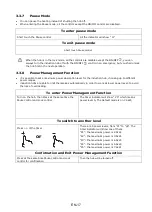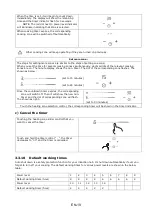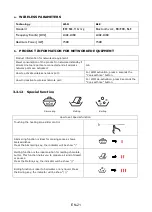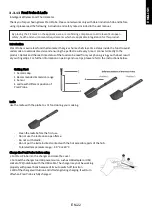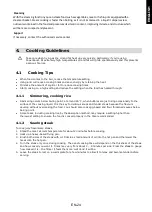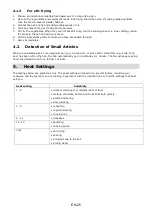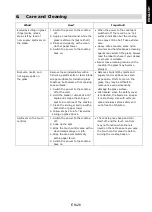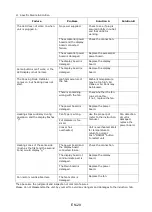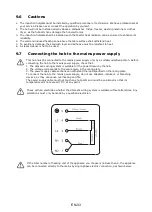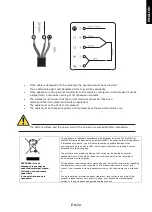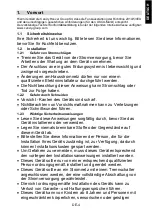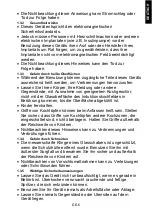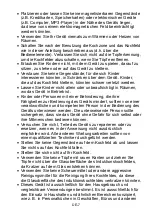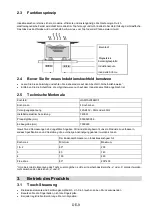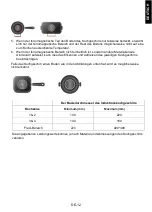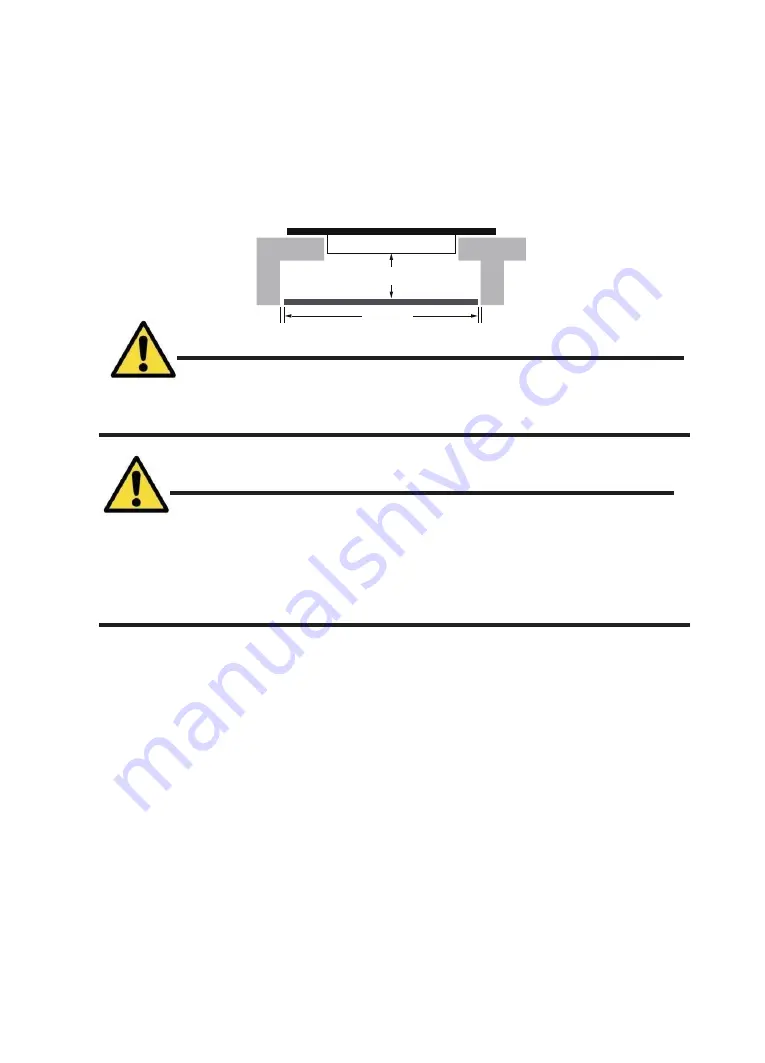
WARNING: Ensuring Adequate Ventilation
Make sure the induction cooker hob is well ventilated and that air inlet and outlet are not blocked. In
order to avoid accidental touch with the overheating bottom of the hob, or getting unexpectable electric
shock during working, it is necessary to put a wooden insert, fixed by screws, at a minimum distance
of 50mm from the bottom of the hob. Follow the requirements below
There are ventilationholes around outside of the hob. YOU MUST ensure these holes are not blocked by
the worktop when you put the hob into position.
•
Be aware that the glue that join the plastic or wooden material to the furniture, has to resist to
temperature not below 150
℃
, to avoid the unstuck of the paneling.
•
The rear wall, adjacent and surrounding surfaces must therefore be able to withstand an temperature
of 90
℃
.
9.2
Before installing the hob, make sure that
•
The work surface is square and level, and no structural members interfere with space requirements.
•
The work surface is made of a heat-resistant and insulated material.
•
If the hob is installed above an oven, the oven has a built-in cooling fan.
•
The installation will comply with all clearance requirements and applicable standards and regulations.
•
A suitable isolating switch providing full disconnection from the mains power supply is incorporated in the
permanent wiring, mounted and positioned to comply with the local wiring rules and regulations.
•
The isolating switch must be of an approved type and provide a 3 mm air gap contact separation in all
poles (or in all active [phase] conductors if the local wiring rules allow for this variation of the
requirements).
•
The isolating switch will be easily accessible to the customer with the hob installed.
•
You consult local building authorities and by-laws if in doubt regarding installation.
•
You use heat-resistant and easy-to-clean finishes (such as ceramic tiles) for the wall surfaces surrounding
the hob.
Min. 5 cm
Max. 5 mm
Max. 5 mm
EN-31

